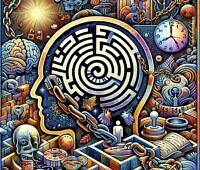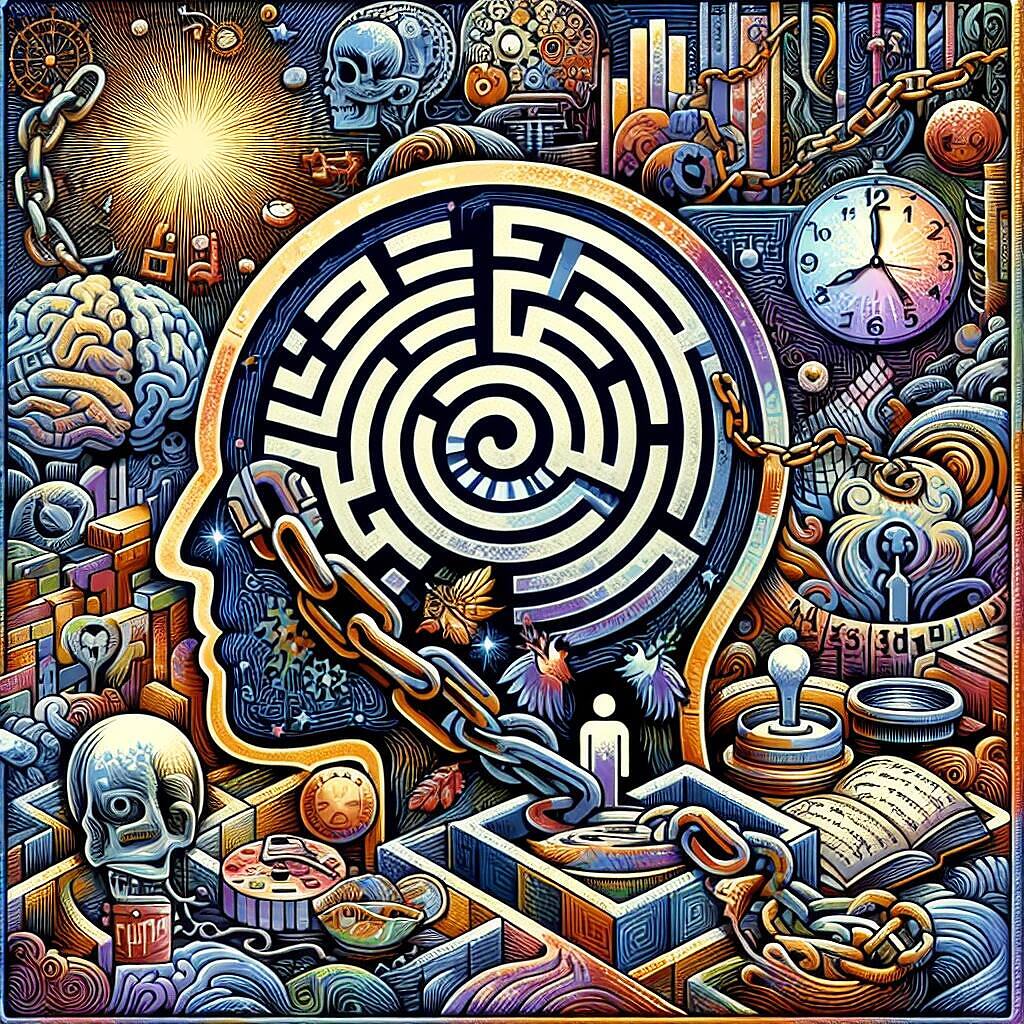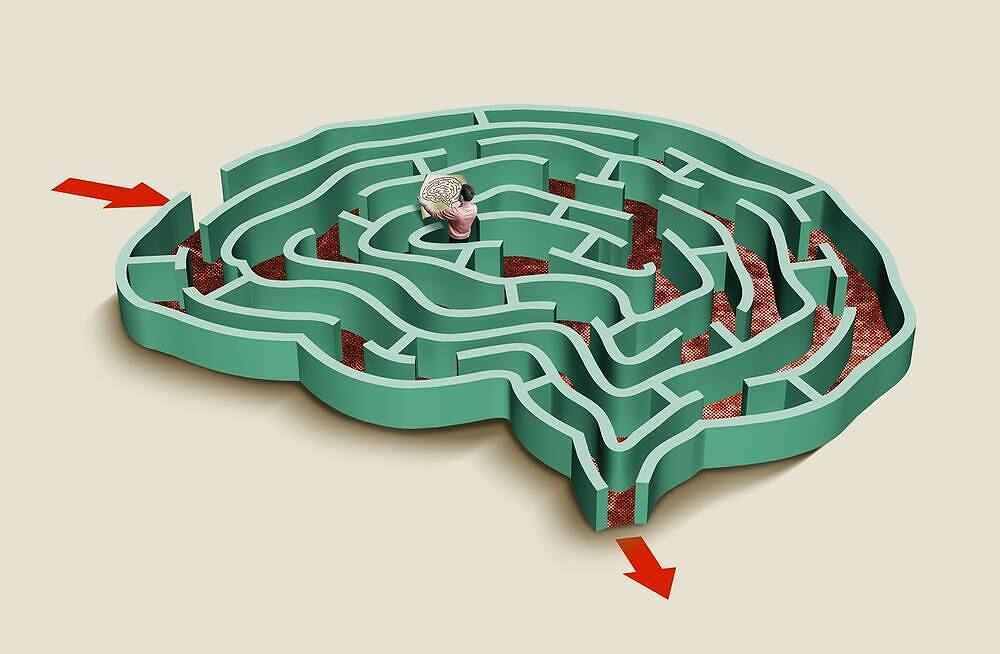
Addiction Psychology

What is Addiction Psychology?
Addiction Psychology can help us understand and treat physical and mental dependence on drugs, alcohol and other behavioural compulsions.
Addiction psychologists study the interaction between biological, psychological, and social influences to gain insight into why individuals become addicted and how to treat these addictions effectively.
A key objective of addiction psychology is to create personalised prevention and treatment plans that address the specific needs of each person. This includes examining the underlying causes of addiction, such as trauma, mental health conditions, or environmental triggers, and finding ways to address these issues in therapy. The ultimate goal is to develop strategies that not only help individuals overcome addiction but also empower them to lead healthy, fulfilling lives.
Addiction psychologists take a comprehensive approach to treating addiction by addressing both the symptoms and root causes of the problem. They use a combination of research, therapy, and ongoing support to assist individuals in overcoming addiction and creating a more satisfying and healthy lifestyle. Their goal is to break the cycle of addiction and promote overall well-being.
Key points in addiction psychology
- Addiction involves both our brain and our mind
- There are strong links between addiction, mental health problems and neurological issues
- Addiction psychology in rehab can tackle the immediate and underlying motivation behind dependence
Is Addiction Mental or Physical?
It is possible to be addicted to almost anything you can enjoy and get pleasure from. There is a difference between physical dependence and the psychological need to use or do something pleasurable.
Physical addiction means that your body changes to become addicted to a substance. This happens in the case of alcohol, opiates and nicotine. Anything where you experience physical withdrawal when you stop is addictive in this way.
That is not to say that these substances are not psychologically addictive, either. The two often go hand in hand when it comes to chemically addictive substances.
The difference is made because you can be psychologically addicted without physical withdrawal. This is the case with behavioural addictions such as gambling, food and sex addiction, where there is only the need to feel the pleasure associated with the activity.
How Our Brains Get Addicted
When something good or pleasurable happens in our lives, it enters our brain through our senses and travels to the pleasure centre of our brain. There are several parts of your brain that register positive, happy and calming feelings.
The main ones are:
Dopamine
A dopamine hit is a commonly used expression for that feel-good experience we have when something we really enjoy happens. It is designed to understand good things and motivate us to do them more. Anything from sex to a delicious dessert can trigger dopamine in our brains.
Many addictive substances and behaviours can trigger dopamine in a less natural and unhealthy way. If we are under some emotional stress or depression, then we may seek reward and happiness from alcohol, gambling or drugs. Opiates are particularly severe in the amount of dopamine they trigger, sometimes as much as 200 times the normal level for a positive experience.
This causes you to want that same pleasurable feeling again and again. Over a short time, it can disrupt how your brain deals with dopamine and, therefore, pleasure and happiness. It becomes more and more challenging to enjoy normal pleasurable activities and leads to one of the most common signs of addiction: loss of interest in activities other than the addiction.
GABA
GABA (gamma-aminobutyric acid) is a chemical messenger in your brain. This is one of the ways our brain works. We absorb something we experience, and our brain sends a message with this chemical to our central nervous system. Neurotransmitters or chemical messengers do many different things but GABA is responsible for the feeling of relaxation and calm.
This is important in studying the biology of addiction to substances such as alcohol, which attach to GABA receptors and mimic the chemical. This creates that feeling of calm and being sedated when we drink.
GABA VS Dopamine
It is also a concern for opiate drugs, which block GABA neurons and allow dopamine to overwhelm the receptors. Users experience extremely high levels of pleasure because of this. This convinces your brain that opioids are good for you and tells the decision-making part of the brain to keep taking them.
The longer we take drugs like opioids, the more our brain begins to adjust. In order to get back to doing their job, GABA chemical messengers increase their firing to compensate for the euphoria and relaxation. The result? When you take away the drugs, users feel extremely anxious and experience dramatic mood swings. This accounts for a significant portion of the very harsh withdrawal users get from opioids.

Can Psychology Explain Addiction?
Despite the profound impact drugs, alcohol, and other dopamine-influencing activities have, it is not a simple matter of brain chemistry.
The truth is that not everyone who drinks alcohol or takes opiates or stimulants will become addicted to them. There are several physical and psychological factors that lead to addiction, and none guarantee that one will become dependent on alcohol or drugs. However, each factor makes you more likely to struggle with becoming addicted.
Genetics and Addiction
Given that addiction originates in the brain and many parts of our brain structure and functioning are inherited, it should come as no surprise that around 50-60% of a person’s vulnerability to addiction comes from their genes. The reason lies in how your brain processes dopamine.
Your D2 dopamine receptors allow you to enjoy normal human pleasures such as delicious food, sex and positive social contact. People born with fewer D2 receptors find it harder to enjoy these things and often turn to drugs which can offer much higher and easier amounts of dopamine than they experience normally.
For this reason, it is more common for people with lower D2 receptors to become addicted to drugs or alcohol. However, that does not mean that people who don’t have a family history of addiction are safe from becoming dependent. By the same logic, not everyone with a genetic predisposition to addiction will become addicted upon trying drugs or alcohol.
It is worth considering, however, if you have a family member who has a serious addiction; you are more vulnerable to this condition if you misuse drugs or alcohol.
Mental Health and Addiction
Mental health has a significant impact on whether or not a person will become addicted to alcohol, drugs or damaging behaviours.
Which comes first, addiction or mental health problems?
Either can trigger the other. Around 24% of people with mood and anxiety disorders self-medicate using alcohol or drugs. Using substances in this way instead of medication can lead to addiction and spiralling drug and alcohol use.
Drugs and alcohol also lead to a lifestyle and choices that can be traumatising. Trauma is one of the leading causes of mental health problems in adults and adolescents.
Withdrawal on the Brain
Opioids
The changes in the brain mean that taking opioids seems like the only answer to the terror and pain people experience. This means that withdrawal from these drugs can be both painful and frightening when not managed carefully.
Alcohol
The brain is heavily affected by alcohol misuse. GABA receptors are a key factor in alcohol substituting for this chemical messenger, leading to the body dropping its natural levels. Lack of this calming effect, alongside changes in the brain’s pathways, can lead to severe withdrawal such as seizures, hallucinations and cardiac problems.

Psychology in Rehab
What does all this mean for people hoping for a way out of addiction?
Rehabilitation, in whatever form you choose, will be designed to treat the psychological and physical issues that lead to your addiction.
This means:
- Medical detox
- One-to-one counselling
- Group therapy
- Role-playing
- Future planning
At Detox Plus, we understand that each person’s journey to recovery is different. We acknowledge that addiction and mental health issues can manifest in a variety of ways and that what works for one person may not work for another. That’s why our team of experienced professionals takes the time to assess each client’s specific circumstances and create a personalised treatment plan that addresses their unique needs.
Whether someone is struggling with substance abuse, a co-occurring mental health disorder, or a combination of both, we are here to offer support and guidance every step of the way. Our tailored treatment programs may include a combination of therapy, medication management, holistic approaches, and support groups, all designed to help clients address their underlying issues and develop coping strategies for long-term success.
The History of Addiction Psychology
During the 18th and 19th centuries, the moral model of addiction portrayed addiction as a deficiency in morals or character. This resulted in individuals with addiction being ostracised and held accountable for their struggles, as they were perceived as lacking the determination or ethical fortitude to conquer their substance abuse.
As awareness grew about addiction being a multifaceted disease influenced by both biological and environmental elements, the medical model of addiction surfaced. This model regards addiction as a prolonged brain illness that can be addressed through medical treatment, counselling, and assistance.
The concept of addiction within a medical framework has resulted in addiction being seen as a medical condition, moving away from a focus on punishment and embarrassment towards treatment and assistance. This method highlights the significance of addressing underlying factors like trauma, mental health issues, and genetic predispositions that can influence addictive tendencies.
When addiction is approached from a medical standpoint, individuals facing addiction are more inclined to receive caring and successful treatment, resulting in improved results and enhanced well-being. This change in viewpoint has aided in diminishing the stigma associated with addiction and encouraging a more empathetic and supportive approach to assisting those in need.
The First Addictionologists
At the start of the 20th century, a fresh area of study known as addiction psychology research started to develop. Sigmund Freud, a pioneer in this field, was one of the first to delve into the idea of addiction as a way to self-medicate for deeper psychological problems.
During the middle of the 20th century, addiction psychology gained more prominence as substance abuse became a more pressing issue in society. Researchers began to concentrate on unravelling the psychological processes behind addictive behaviours and creating successful methods for treatment.
Addiction psychology has seen growth and progress from the latter part of the 20th century to the present day. There have been significant breakthroughs in comprehending the biological underpinnings of addiction, along with the influence of genetics, environment, and societal factors on the development of addictive tendencies.
Today, addiction psychology is a diverse field that incorporates knowledge from psychology, neuroscience, genetics, sociology, and other areas to gain a deeper understanding of addiction. Researchers and practitioners are dedicated to creating more effective methods for preventing and treating addiction, as well as working to reduce the stigma surrounding substance abuse and other addictive behaviours.

